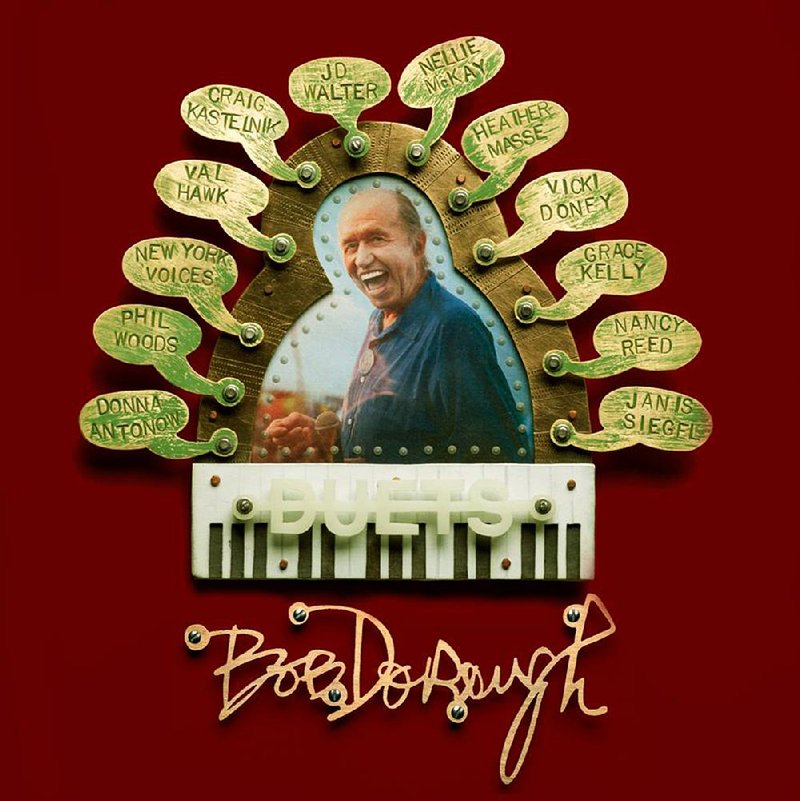A few weeks ago, a hand-written sign posted in the window of The Afterthought bar in Little Rock’s Hillcrest neighborhood advertised the evening’s entertainment: Bob Dorough. If we had been dressed better and didn’t have our three dogs in tow, we would have beelined in there - especially since the cover charge was only $5.
This seems astonishing, considering Dorough’s legacy as a jazz pianist and vocalist. But it’s not unusual. The native of Cherry Hill (near Mena), who now lives in Pennsylvania’s Pocono Mountains, frequently performs at The Afterthought and other intimate venues in his home state.
And unlike most jazz musicians, his appeal extends to two separate and very different audiences.
Dorough, who will turn 90 on Dec. 12, is best known as a voice and primary composer of many of the songs used in Schoolhouse Rock!, a series of animated shorts that made learning fun. They aired on Saturday morning television from 1973 through 1985. If you were too grown up (or otherwise occupied) to have paid attention back then, you might want to check out the 30th Anniversary Schoolhouse Rock! two-disc DVD, which includes the entire five-subject series of Grammar Rock, Science Rock, Multiplication Rock, America Rock and Money Rock.
Along with composing amusingly thought-provoking music for the kiddies, Dorough has taken plenty of walks on the wild side. After playing in an Army band during World War II and attending North Texas State University in Denton, he moved to New York around 1950, then on to Paris in 1954, to perform and record. Returning to the U.S. in 1955, he lived in Los Angeles, where he released his first album, Devil May Care, in 1956. His breezy bebop piano style influenced the likes of Mose Allison, Kurt Elling, Mark Murphy and Michael Franks, and he worked onstage with Beat Generation icons Miles Davis, Lenny Bruce and Allen Ginsberg.
When showing off his scat singing skills and piano chops in jazz clubs, Dorough sometimes encounters an audience member who recognizes his voice from the Schoolhouse Rock! cartoons - a perfect opportunity to perform a song he wrote for the series.
On the subject of Dorough’s vocals, music critic Scott Albin wrote in 2008 on the website jazz.com: “Recently unearthed from a time capsule buried in 1979, I discovered an old review of mine for Down Beat of a Dorough concert in which I wrote, ‘As always, Dorough sang songs with meaningful, sophisticated or witty lyrics, and interpreted them in his one-of-a-kind, nonpareil manner. His voice is not powerful, but he is a totally relaxed, uninhibited vocalist. ... His long [piano] improvisations were craftily structured, subtly intricate and as deeply expressive as his singing. His bop-based piano playing had a sprightliness, abandon and unpredictability that hooked the listener almost instantly.’ I stand by those words today.”
Already possessing a discography as band leader on 18 albums and as guest artist on at least 22 more, Dorough recently released the self-produced Duets, 11 original compositions on which he shares entertainment duties with jazz musician pals such as Nellie McKay, Janis Siegel, Grace Kelly, J.D. Walter and Nancy Reed.
Recorded at Red Rock Recording in Saylorsburg, Pa., Duets opens with Dorough’s signature 1956 composition “Devil May Care,” accompanied by the New York Voices and a wicked alto sax solo by Phil Woods. The bright, catchy piece sets the tone for the album. Complex harmonies sound effortless, as do ever-changing time signatures and keys.
“Love Came on Stealthy Fingers,” another classic by Dorough, is a sultry ballad marked by major-minor shifts and the haunting vocals of Heather Masse. “The Song of the Mourning Dove” offers flute accompaniment by Dorough’s daughter, Aralee. And there’s the surprising “Comin’ Home Baby,” a sexy, swaying R&B number that gains power not only from Dorough’s voice but from Craig Kastelnik’s skills on the Hammond B-3 organ.
Although Duets is user-friendly, this isn’t for the Schoolhouse Rocks! crowd. It’s sophisticated, swinging music with an arch sense of humor that bubbles with the sort of good-natured competence produced by first-rate musicians who enjoy working together.
Proceeds from Duets benefit the Celebration Of The Arts (COTA), also known as the Delaware Water Gap Jazz Festival.
The recording is available at bobdoroughduets.com.
Style, Pages 50 on 07/28/2013

